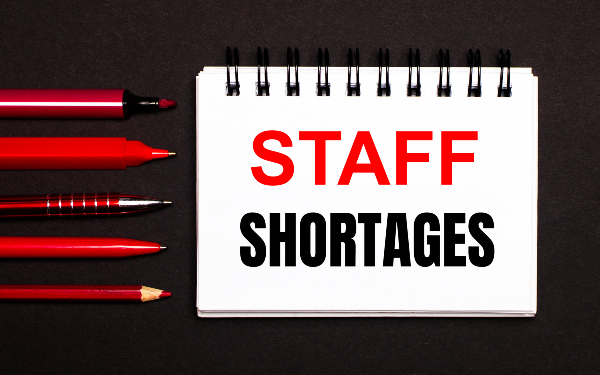
Social worker shortages are leaving mental health patients in Scotland without “important” safeguards, sector leaders have said.
The Scottish Association of Social Work (SASW), Social Work Scotland and the Mental Welfare Commission for Scotland (MWC) issued the warning after MWC data revealed year-on-year falls in the proportion of emergency detentions for which mental health officers (MHO) gave consent.
MHOs – who are specialist mental health social workers – gave consent in just 36.6% of cases in 2022-23, down from 40.4% in 2021-22, with the rate having lagged below 50% for six years, said the MWC, in a report published last week.
Lack of safeguards ‘not acceptable’
The latest fall means that, in almost two-thirds of cases, just one professional – a doctor – was involved in the decision to issue an emergency detention certificate (EDC), under which a person can be kept in hospital for up to 72 hours.
The MWC described the lack of patients receiving the “important” safeguard as “not acceptable”.
In making their decision, the doctor must believe that the person has a mental disorder that significantly impairs their decision making; that detention is necessary as a matter of urgency, and that, if it does not happen, there will be significant risk to the person’s health, safety or welfare, or another person’s safety.
They must also be satisfied that seeking a short-term detention certificate, which provides for detention for up to 28 days, would involve “undesirable delay”.
The Mental Health (Care and Treatment) (Scotland) Act 2003 requires that the doctor consult, and gain the consent of an MHO, unless this is impracticable.
Social worker role in upholding rights
The purpose of MHO consent is to safeguard the potentially detained person’s rights, states the code of practice on the 2003 act.
It says the MHO should, in deciding whether to give consent, try to elicit the person’s views on being detained, gather information on their personal and social circumstances, and consider whether the detention criteria are met and, if so, whether there are less restrictive alternatives.
One of the challenges in securing MHO consent for an EDC is the tight timeframe involved: the doctor must produce the certificate on the day they examine the person or, if the examination were carried out after 8pm, within four hours.
Large regional variations
However, in its report, the MWC found significant variations between health board areas in the proportion of cases with MHO consent, which ranged from 21.2% in Greater Glasgow and Clyde to 84% in Dumfries and Galloway and 100% in Orkney.
The MWC linked the situation to workforce shortages.
“In July 2021 we made recommendations to health and social care partnerships, their respective local authorities and the Scottish Government about the capacity of the mental health workforce and the expectations around how detentions should take place not being realised in practice,” said the watchdog’s medical director, Dr Arun Chopra. “The data in this report further evidences concerns around the workforce.”
Social worker shortages
The number of MHOs employed by councils fell from 709 to 660 from 2017-21, before rising to 670 last year, according to Scottish Social Services Council (SSSC) data.
The regulator found that there was still a shortfall in MHO capacity of 2,606 hours per week, down from 2,840 the year below.
SASW and Social Work Scotland, which represents council leaders, joined the MWC in citing MHO shortages as a contributory factor to the lack of safeguards for patients.
“Decisions to take a compulsory measure for care and treatment, delivered against people’s will, must be accompanied by strong safeguards for human rights and consideration for the wider aspects of their lives,” said SASW national director Alison Bavidge.
Call to improve terms and conditions
“Social work is the profession that deals directly with human rights and risk. The number of detentions happening without this fundamental safeguard is deeply concerning. Specialist social workers (MHOs) must be involved in all decisions to detain under the Mental Health Act.
“In Scotland we have a shortage of MHOs. Improving pay and conditions for this complex and specialist role is a necessary first step in attracting new MHOs in Scotland.”
Ben Farrugia, director of Social Work Scotland, said: “Safeguards involving social workers are built into systems for good reason, but for them to work we need to retain the experienced social workers we currently have, and attract many more into the profession. The challenge for government at all levels is finding the money – and then the people – to make it happen.”
Law reform proposals
In its report, the MWC pointed to a recommendation from last year’s final report of the Scottish Mental Health Law Review that an EDC without MHO consent should only happen in “exceptional circumstances”.
The Scottish Government has pledged to “deliver on the aspirations” of the review with a programme to modernise legislation, but has not committed itself on specific measures.
Chopra said: “We ask that this deficit in safeguarding is addressed locally and nationally. We believe that a more strategic long term approach could come from action related to the Scottish Mental Health Law Review, which is currently under consideration by government.”




 Family help: one local authority’s experience of the model
Family help: one local authority’s experience of the model  ‘I spent the first three months listening’: how supportive leadership can transform children’s services
‘I spent the first three months listening’: how supportive leadership can transform children’s services  How senior leaders in one authority maintain a culture of excellence
How senior leaders in one authority maintain a culture of excellence  How staff support ensures fantastic outcomes for children and families
How staff support ensures fantastic outcomes for children and families  Workforce Insights – showcasing a selection of the sector’s top recruiters
Workforce Insights – showcasing a selection of the sector’s top recruiters 

 Facebook
Facebook X
X LinkedIn
LinkedIn Instagram
Instagram
It’s so wrong.